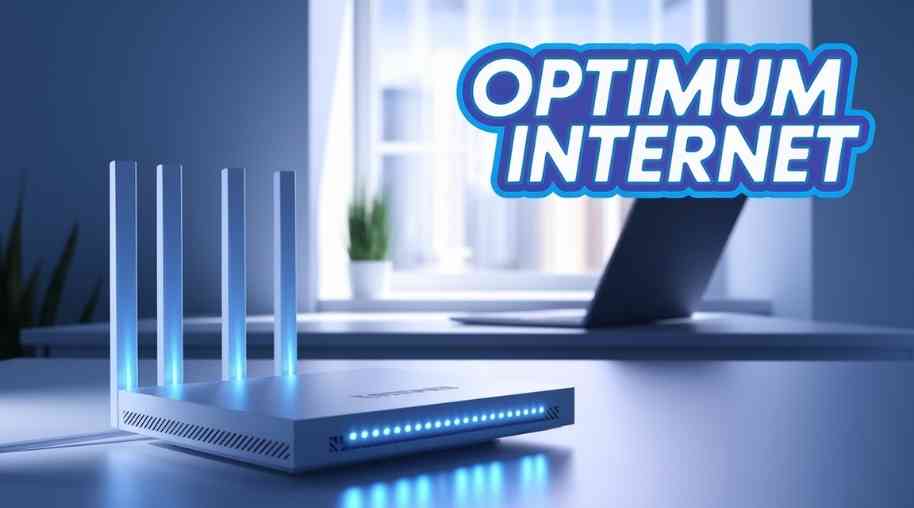IP Full Form-Internet Provider
by Shashi Gaherwar
0 2304
Understanding Internet Providers: Types, Services, and Choosing the Best ISP
The Internet Provider, commonly known as an Internet Service Provider (ISP), is a company that offers internet access to individuals and businesses. ISPs provide various connectivity options, including broadband, fiber optics, satellite, and wireless internet, ensuring seamless communication and access to the digital world.
With the increasing dependence on the internet for work, entertainment, education, and business, choosing the right ISP plays a crucial role in ensuring a smooth online experience. This article delves into the types of internet providers, their services, and factors to consider when selecting the best ISP.

Types of Internet Providers
Internet service providers offer different types of internet connections, each with its unique features and performance levels.
1. Dial-Up Internet
- One of the earliest forms of internet access.
- Uses telephone lines to connect to the internet.
- Extremely slow (maximum speeds up to 56 Kbps), making it obsolete for modern applications.
2. Broadband Internet
- A high-speed internet connection with continuous access.
- Does not require a phone line to operate.
- Includes multiple subtypes, such as DSL, cable, and fiber-optic internet.
3. DSL (Digital Subscriber Line)
- Uses existing telephone lines but offers higher speeds than dial-up.
- Speed ranges from 1 Mbps to 100 Mbps.
- Affordable but slower compared to fiber or cable internet.
4. Cable Internet
- Delivered via coaxial cable networks.
- Faster than DSL, with speeds between 10 Mbps and 1 Gbps.
- Widely available and offers good reliability.
5. Fiber-Optic Internet
- Uses fiber-optic cables for data transmission.
- Offers ultra-fast speeds up to 10 Gbps.
- Best for gaming, streaming, and high-bandwidth activities.
- Limited availability compared to DSL and cable internet.
6. Satellite Internet
- Uses satellites to provide internet access.
- Suitable for remote and rural areas.
- Slower speeds (10 Mbps to 100 Mbps) and higher latency due to long signal travel distances.
7. Wireless Internet (Fixed Wireless and 5G Internet)
- Uses radio signals instead of cables.
- Fixed Wireless: Ideal for rural areas where traditional broadband is unavailable.
- 5G Internet: Next-generation wireless internet with ultra-fast speeds (up to 10 Gbps).
Services Provided by Internet Providers
Internet providers offer more than just an internet connection. Many ISPs provide value-added services, including:
- Broadband Packages: Different speed and data plans catering to individual and business needs.
- Wi-Fi Services: Home and office Wi-Fi routers for wireless connectivity.
- TV and Streaming Bundles: Some ISPs bundle internet with cable TV and streaming services like Netflix, Amazon Prime, and Disney+.
- VoIP Services: Voice-over-Internet Protocol (VoIP) allows users to make calls over the internet.
- Cloud Storage and Security Solutions: Some ISPs provide cloud backup, cybersecurity software, and VPN services.
- Business Solutions: High-speed dedicated internet, leased lines, and enterprise-grade connectivity for businesses.
How to Choose the Best Internet Provider
With numerous ISPs available, choosing the right one depends on various factors.
1. Internet Speed and Performance
- Evaluate the required speed based on your usage (streaming, gaming, remote work, etc.).
- For households, 100-300 Mbps is sufficient, while businesses may require 1 Gbps or more.
2. Data Limits and Fair Usage Policies
- Some ISPs have data caps, while others offer unlimited plans.
- Check for throttling policies that reduce speeds after a certain usage.
3. Availability in Your Area
- Not all ISPs offer the same services in every region.
- Use ISP coverage maps to find providers available in your location.
4. Pricing and Plans
- Compare monthly fees, installation charges, and promotional discounts.
- Look for bundles that include TV, phone, and streaming services for cost savings.
5. Reliability and Customer Support
- Read customer reviews about network uptime, service quality, and support efficiency.
- ISPs with 24/7 customer service and quick response times are preferable.
6. Contract Terms and Hidden Fees
- Some ISPs require long-term contracts with early termination fees.
- Check for hidden charges like equipment rental fees, installation costs, and additional taxes.
Top Internet Providers in the World
Some of the most well-known ISPs worldwide include:
United States
- Comcast Xfinity: Offers high-speed cable and fiber internet.
- AT&T Internet: Provides fiber-optic and DSL services.
- Verizon Fios: Leading fiber-optic ISP.
- Spectrum (Charter Communications): Known for cable broadband.
United Kingdom
- BT Broadband: Leading ISP with fiber and DSL services.
- Virgin Media: Offers ultra-fast broadband and TV bundles.
- Sky Broadband: Known for high-speed fiber internet.
India
- Airtel Xstream Fiber: Leading fiber-optic ISP.
- Reliance JioFiber: Provides affordable high-speed broadband.
- BSNL Broadband: Government-owned ISP with wide coverage.
Future of Internet Providers
The future of ISPs is shaped by advancements in technology, including:
- 5G Expansion: High-speed, low-latency internet with wider accessibility.
- Fiber-Optic Growth: Increased adoption of fiber broadband for ultra-fast speeds.
- Satellite Internet Developments: Companies like Starlink (by SpaceX) aim to provide global high-speed internet.
- AI and Smart Connectivity: Artificial intelligence (AI) will enhance network performance and optimize bandwidth allocation.
An Internet Provider (ISP) plays a crucial role in connecting individuals and businesses to the digital world. With various types of internet services, from broadband and fiber-optic to satellite and wireless connections, choosing the right ISP depends on speed, availability, reliability, and cost.
As technology advances with 5G, fiber networks, and satellite internet, ISPs will continue evolving to offer faster, more affordable, and widespread connectivity. Ensuring that you pick the best provider will help you stay connected in an increasingly digital age.
Further Learning Resources
If you’re passionate about building a successful blogging website, check out this helpful guide at Coding Tag – How to Start a Successful Blog. It offers practical steps and expert tips to kickstart your blogging journey!
For dedicated UPSC exam preparation, we highly recommend visiting www.iasmania.com. It offers well-structured resources, current affairs, and subject-wise notes tailored specifically for aspirants. Start your journey today!

Share:









Comments
Waiting for your comments